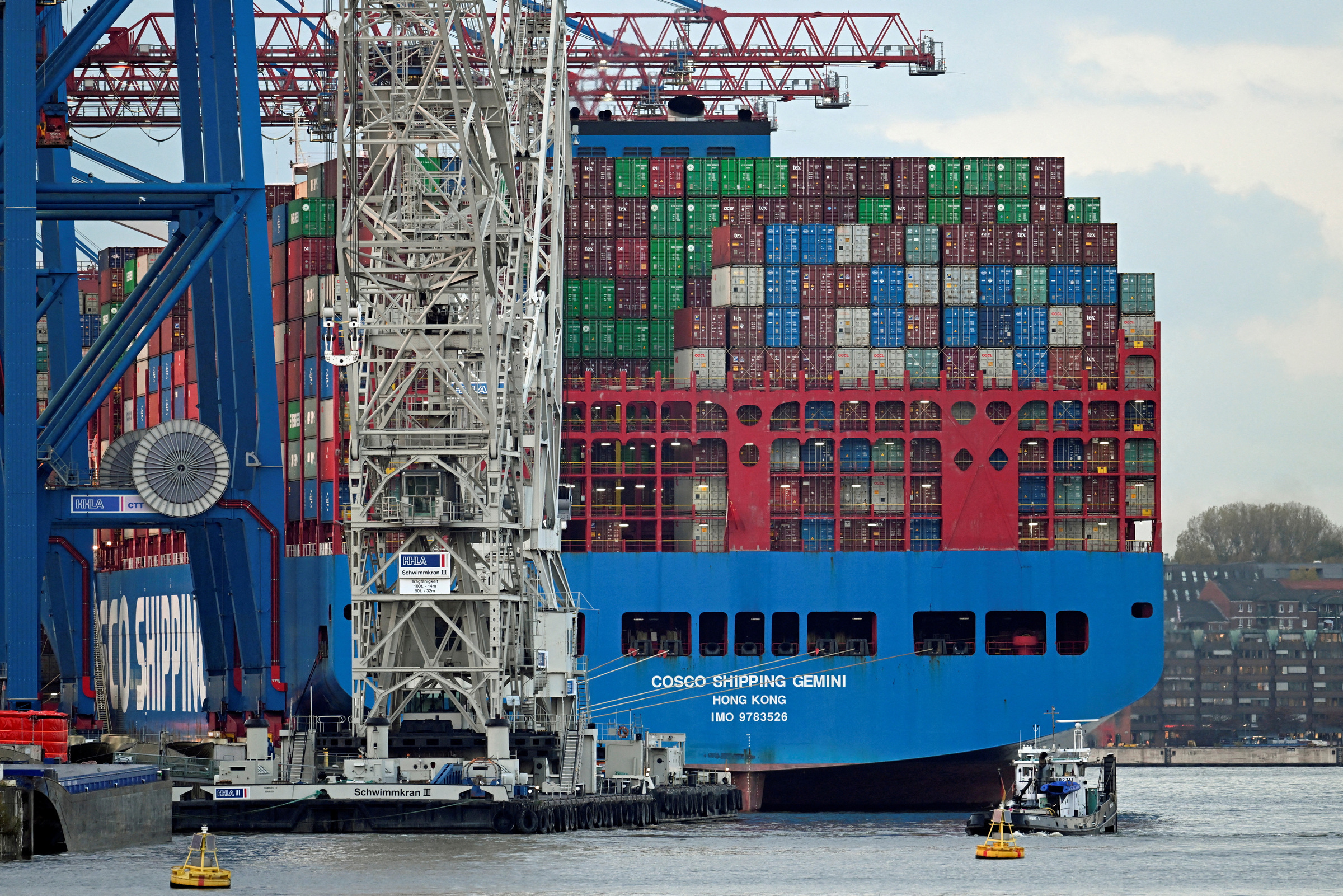This information was released by a European Commission (EC) spokesperson on July 7, after EC President Ursula von der Leyen and US President Donald Trump had a "good discussion".
"We want to reach an agreement with the US. We want to avoid tariffs. We want a win-win outcome, not a lose-lose situation," the EC spokesperson added during a regular press briefing.
On CNN, US Treasury Secretary Scott Bessent also confirmed that negotiations with the EU are progressing well. However, no specific details about significant breakthroughs in the negotiations have been released by either side.
 |
A Cosco Shipping Gemini cargo ship, owned by the Chinese shipping company Cosco, is loaded at the port of Hamburg, Germany, on 25/10/2022. Photo: Reuter |
A Cosco Shipping Gemini cargo ship, owned by the Chinese shipping company Cosco, is loaded at the port of Hamburg, Germany, on 25/10/2022. Photo: Reuter
According to the European Council (EC), the US-EU trade relationship is one of the most important in the world, accounting for about 30% of total global merchandise trade. The most traded goods include pharmaceuticals, road vehicles, and petroleum products.
In 2024, total trade between the US and the EU was about 1,680 billion euros (1,980 billion USD). The EU recorded a surplus of 198 billion euros in goods but a deficit of about 148 billion euros in services. This means the bloc had a trade surplus of about 50 billion euros with the US.
Earlier, in early April, Trump announced retaliatory tariffs of 20% against the EU, in addition to general tariffs of 10% on most goods. Cars and car parts face a 25% tariff, while aluminum and steel face 50%. The retaliatory tariffs were then postponed for 90 days, with a deadline of July 9. However, Trump recently announced a further delay until August 1.
According to Reuters, the EU is divided between two options: pushing for a quick and limited trade agreement or leveraging the bloc's economic power to negotiate a more advantageous outcome.
Last weekend, von der Leyen spoke with the leaders of Germany, France, and Italy. German Chancellor Friedrich Merz stressed the need to quickly reach an agreement to protect industries vulnerable to high tariffs, from cars to pharmaceuticals.
Research by the Brussels-based think tank Bruegel predicts that if no agreement is reached and President Trump imposes tariffs of 10% to 25% on European goods, the EU will lose 0.3% of its GDP, while US GDP could fall by up to 0.7%.
Experts predict that due to the complexity of some issues, the two sides may only reach a framework agreement before the July 9 deadline. In that case, the base 10% tariff, along with tariffs on cars, steel, and aluminum, will likely remain in place until the detailed terms are finalized.
Holger Schmieding, chief economist at Berenberg Bank (Germany), predicts the most likely scenario is that the US will withdraw its most severe tariff threats. But, according to him, "the road to get there may be bumpy".
Phien An (according to Reuters, AP)












